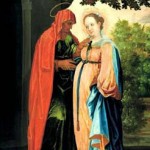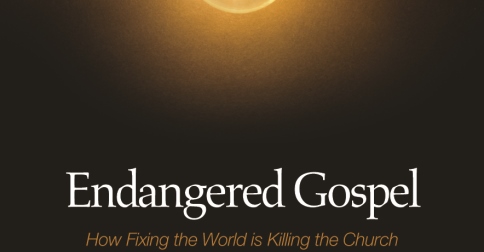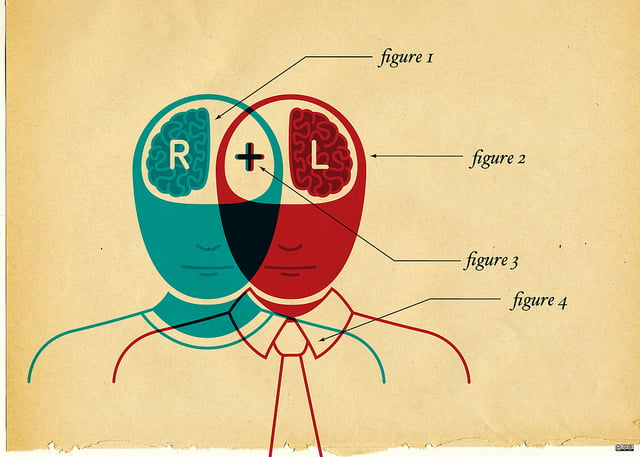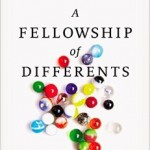 Claiming a People and a Place.
Claiming a People and a Place.
Daily Advent Reflection.
Craig Goodwin.
John 7:40-52.
Saturday, December 17, 2011
Lo! How a rose e’re blooming
From tender stem hath sprung
Of Jesse’s lineage coming
As those of old have sung
It came, a flowerth bright
Amid the cold of winter
When half-spent was the night
– “Lo! How A Rose E’er Blooming”
These daily Slow Church Advent Reflections are based on the Daily Readings of the Revised Common Lectionary (Year B). We love for you to read and reflect along with us!
To keep up with this daily Advent series, follow SlowChurch.com on FACEBOOK or TWITTER.
Today’s gospel reading in John 7 finds the crowds and authorities in Jerusalem debating Jesus’ Messianic credentials and at the heart of the debate is the question of the hometown where the long-anticipated Messiah would be born. Jesus sounded like the Messiah, he healed like the Messiah, but he failed the most basic qualification—he was from Galilee. The people were confused and asked, “How can the Messiah come from Galilee? Does not Scripture say that the Messiah will come from David’s descendants and from Bethlehem, the town where David lived?”
Even the temple guards who were sent to arrest Jesus waffled on the issue. When they reported to the chief priests and Pharisees that they didn’t have the heart to lock him up, they explained, “No one ever spoke the way this man does.”
Jesus was so convincing as the Messiah that people wondered if they could wave the significance of the Messiah’s birthplace. They wondered if perhaps God’s new messianic era isn’t bound by a place on a map or a link to a historic bloodline.
Nicodemus, one of the Pharisees who had also encountered the convincing allure of Jesus’ teaching, took pity on the failure of the guards. He turned to his fellow rulers and made the case for the possibility that Jesus was a prophet or maybe even the Messiah. He said, “Does our law condemn a man without first hearing him to find out what he has been doing?”
The Pharisees responded with mockery: “Are you from Galilee, too? Look into it, and you will find that a prophet does not come out of Galilee.”
John tells the story in such a way that the reader is compelled to jump into the debate. Between crowds claiming Jesus is the Messiah regardless of birthplace and others insisting that the Messiah is born in Bethlehem, we are led by John’s telling of the story to proclaim that Jesus is the Messiah AND that he was born in Bethlehem. It’s like one of those children’s TV shows where there is a pause in the action so the viewer can yell at the oblivious characters on the TV screen: “But he WAS born in Bethlehem!”
As we walk the Advent journey anticipating the coming Messiah John reminds us of the importance of place in the story of salvation. He makes us defenders of the great tradition that says the Messiah comes not as a timeless, placeless, abstract truth, rather God shows up within the historic and geographic limits of a place. This was true in Bethlehem with the coming of the Messiah and it’s true today as we flesh out the gospel in our own lives and neighborhoods.
I was reminded of this a few weeks ago when I was leading a group of people through our new member class at church and someone asked a question that always seems to come up these days. They said, “What’s the difference between being an active participant in the life of the church and being a member?”
I pointed out some of the technical details like voting at congregational meetings and the possibility of serving as an officer in the church’s leadership, but then I brought up the importance of place in the Bible. I explained, “God’s story in Scripture is always fleshed out in a place among a particular group of people. It’s not just Jesus, it’s Jesus of Nazareth. It’s not just God, it’s the God of Abraham, Isaac, and Jacob.”
I explained that the same is true today. The gospel is not some abstract truth that we just agree with in our minds and hearts, it is a story of salvation that is worked out in a place and among a people.
I mentioned that I find a lot of people floundering in their faith journey and said, “It seems like it’s really difficult for people to settle in a place these days. So many things conspire against us getting connected in community, from being busy to moving around. But at some point we just have to land somewhere. We need to claim a place and a people and accept that this is going to be where we participate in the unfolding story of salvation.”
And any place will do. The Messiah was born in Bethlehem so that every place on earth might be a birthplace for the Spirit of God. All we need do is settle into the unique geography and history of a place and we will see. We will be filled with anticipation of the coming Messiah, we will rest in the sure truth that the Messiah has already come, and we will be startled by the recognition that the Messiah is here now.
——-
Craig Goodwin is pastor of Millwood Community Presbyterian Church in Spokane, Washington and author of Year of Plenty, which was recently picked by The Englewood Review of Books as one of the best books of 2011.












